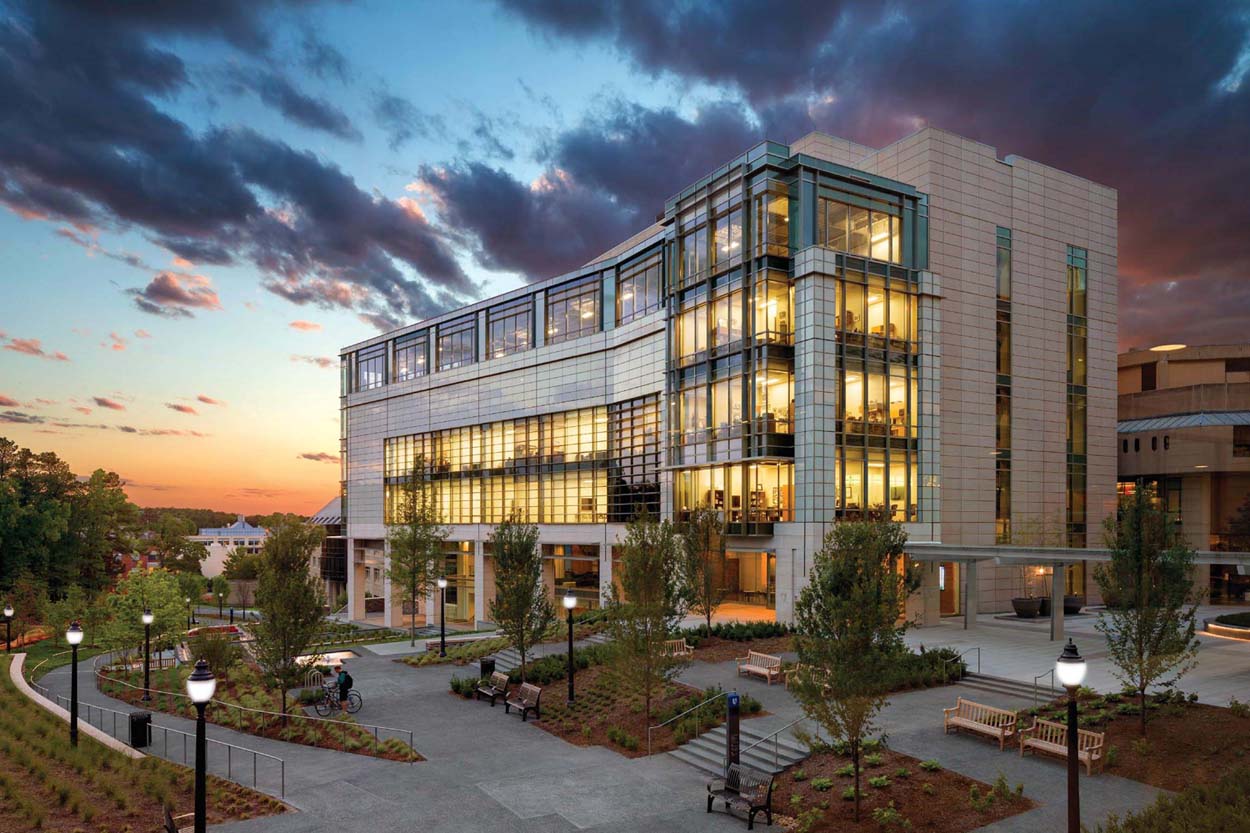You finally landed that coveted medical school interview and aced it. Should you send a thank you letter? We recommend that you do.
Once you pass the first stage of the medical school admissions process, you’ll move on to the interview stage. Most medical schools use either the multi mini interview method (MMI) or utilize a traditional panel approach. Many students wonder after they’ve showcased your personality and soft skills -what’s the best way to reengage your medical school of choice after you’ve completed the interview stage of the selection process?
The most effective way of going about this is a thank you letter. A majority of applicants do submit thank you letters after their interviews. The letters present another chance to show interest in the school while reminding them that you are a conscientious prospect. Since you’ve done all the work to prepare for the ostensibly exhaustive interview to introduce yourself in a positive light, why not send a thank you letter? It accounts for the easiest part of the process, while the importance of doing so shouldn’t be underestimated.
Since so many applicants send thank you letters, the admissions committee is probably expecting one from you. So how do these post-interview questions work? What’s the best way to compose one? And how long should you wait before sending one? The following article seeks to answer those questions while taking a close look at how students typically structure a post-interview thank you letter through two samples. It’s meant to be a comprehensive overview that should leave you completely prepared to make a positive impression after you complete the med school application process.
What’s the Intent Behind a Thank You Letter?
It’s important to remember that while most people feel gratitude after all kinds of positive experiences, it’s rare that the person who initiated the good deed ever receives a word of thanks. Likewise, thanking someone on the spot is a must and is almost automatic, but sending a letter a few days after is the mark of a conscientious personality. And this, of course, is something all medical schools look for, particularly in the interview stage.
Thank you letters also present a great opportunity to reconnect with the admissions committee after the interview and remind them of your candidacy. If your interview was flawless, a thank you letter only helps to improve your chances of acceptance. Alternately, if you felt like things went less than stellar during your meeting, a thank you letter can only help to make up lost ground. There are few accomplishments in life more strenuous than getting into a top medical school. You don’t want to leave anything to chance. Thank you letters, especially after a one-on-one interview, are a great way to express your enthusiasm about committing to the school.
What should you do if you completed a multi mini interview with several faculty and staff? In this case, the best practice is to send a thank you letter to the school dean or office of admissions at the institution where you completed the interview. There’s no need to go overboard and send thank you letters to each participant.
Consider sending a handwritten note over an email as well. Medical school faculty and staff are extremely busy, and likely inundated with electronic mail all day. You don’t want them to associate your candidacy with their heavy workload. Handwritten cards are more personal, can be displayed on a desk, and are decidedly the best way to stay within your interviewer’s line of sight. The one caveat to this, of course, is that if your handwriting is too poor to read, as will be the case for many future doctors, feel free to type it out.
The Best Time to Send Your Thank You Letter
You want to send your thank you letter sooner rather than later. Ideally, you should send it straight away, within 24-hours after completing the interview. If you send it early, your interviewer likely hasn’t had the opportunity to discuss your candidacy with the office of the admissions committee yet and complete the final evaluation.
If your letter gets to the interviewer before this process starts, your chances of making the best impression possible are considerably improved. If you’ve constructed a good thank you letter, the committee will be more apt to focus on the positive aspects of your application whereby your chances of being accepted improve.
The Ideal Length of Your Thank You Letter
Keep in mind that a thank you letter shouldn’t serve as a cover letter or a chance to restate the case for your candidacy with the admissions committee. It is important to confine the scope of the thank you letter to expressing gratitude for the interview and enthusiasm for the medical school only. This is the best path to ensuring that you leave a positive impression on the interview because you won’t present as overzealous.
Because your interviewer’s time is valuable, you should remain conscious of not presuming to absorb too much of it. That’s why the details and length of your thank you letter are crucial. On the one hand, you want to get to the point while, on the other, the letter should be substantial enough to leave a positive impression. The best approach to going about this is composing a letter that’s both elegant and memorable. At the same time, you should always keep the tone of your thank you letter professional.
The ideal length to aim for, as you compose your post-interview thank you letter, is 100 to 200 words. The read time for a letter of this length is usually no longer a minute, two at tops. Compose the letter in such a way that its structure follows that of a formal email or typewritten letter, even as you’re hand writing the document out.
We previously mentioned that writing an email is less preferred than sending a letter in the mail. If you fall behind in this process, and you’ve passed the 24-hour time frame for mailing a thank you letter via post, you should consider sending an email. Concerning the email subject line, there’s no need to come up with anything overly unique. Some as simple as “Thank You for the Meeting” or “Many Thanks for Our Recent Interview” will suffice. We’ll get into whether or not you should write an email a bit more below.
To Email or Not to Email…
No one can contest that most human business activity has migrated online. You may have even conducted your interview by way of video call. But, presuming, you did meet in person, you can never go wrong with an emailed thank you letter. As to its structure, compose the email as you would any professional letter with a polite greeting, organized body, and sincere closing.
As we mentioned, the advantage of handwritten letters is that they are more personal. This is because no one piece of handwriting is alike. On that same token, an unoriginal email thank you note stands the chance of being nearly identical to another one of the same. Handwritten letters undoubtedly set themselves apart and can display both a uniquely reflective and appreciative personality.
Interviewers are keen on this, and something as simple as a handwritten thank you letter could put a marginal candidate over the edge and into the acceptance column. Nevertheless, an email thank you letter can be effective as well. What’s most important is that you don’t forego sending a thank you letter altogether.
If you elect to compose a handwritten letter be sure to find an aesthetically appealing card with a crisp envelope. If your handwriting skills are borderline, don’t worry. All you need to do is practice writing on separate sheets of paper until you feel comfortable. Don’t go straight for the card if you’re at risk of wasting it with chicken scratch.
If your handwriting is so poor that it might leave a bad impression, and email is assuredly the better option. It might not be as distinct, but electronic mailings are dependable. There’s peace of mind in knowing your recipient received the message. In most cases, you’ll also receive a reply from your recipient, even if it is an autoreply. Medical academics are always checking their inbox, so you can count on the fact that, at a minimum, they glanced at your mailing.
The downside to sending letters through the mail is there’s a chance they’ll get lost. The post office has been lagging in recent years, and it could take days to arrive if gets there at all. Medical schools are busy, so there’s a chance it could get misplaced and end up in a trash bin. Should this happen, you may not find the opportunity to leave an impression at all. That said, when a handwritten letter does find your interviewer, they tend to form a more lasting impression than emails.
Handwritten letters can be more impactful than emails, but do keep in mind the risks associated with utilizing the post to deliver them. The only sure way to know that your interviewer received the thank you letter is by sending an email. Emails deliver instantly and ensure at least some degree of positive influence on your application review.
Structuring a Thank You Letter
Most students apply to several medical schools to improve their chances of finding admission to the best institution possible. Knowing how to write a thank you letter after an interview will benefit you in other areas of your life. You’re bound to attend several interviews apart from medical school, like those for voluntary healthcare internships abroad. Getting into the habit of sending thank you letters after every interview and doing it early is the key.
You might consider creating a general template for a thank you letter to simply the process so you don’t start neglecting it. Moreover, a template saves you time because you don’t have to think too deeply about what to write after every meeting. Every professional thank you letter worth reading should contain the following elements:
Respectful Greeting
This first element should always be kept basic. Less is more. “Dear Dr.” is sufficient enough. Be sure to use the interviewer’s title and last name. Addressing the committee on a first-name basis may come off as unprofessional.
Express Gratitude in the Body
The person who conducted your interview spent a lot of time comparing your application against other qualified candidates and identified you as a top applicant in a very keen pool. Thanking the panel for this is the very least you can do. Express your gratitude for their commitment to medical science and advancing the field by educating newcomers.
Your thank you letter will say a lot. It shows you were respectful of the interviewer’s time by taking time out of your own day to compose a note of thanks. If you have doubts, most medical school admissions consulting professionals agree that knowing how to write a thank you letter after a medical school interview is essential.
Mention a Memorable Aspect to the Interview
The point here is to show the interviewer that you were engaged the entire time and have a sincere interest in attending the school. The interview will remember that you paid attention, which is more favorable to the admissions committee investing in you as a prospective student.
Bring up specific details of your conversation, honing in on any unique topics that make it easier for the interviewer to recognize you. Avoid mentioning anything you perceived as negative from the interview, however, as this might trigger a less than favorable review of your profile. Instead, mention your voluntary healthcare internships abroad you discussed or any research plans you conveyed during the interview.
If you feel like these details might be too involved and commit you to a longer letter, there’s no harm in recalling something more informal, something the two of you may have in common for instance such as a favorite athletic team or hometown.
Express Genuine Enthusiasm
Expressing interest is among the most effective ways to maintain a personal tone in your letter. Thank you letters that fail to express enthusiasm about the opportunity commonly sound generic. Thank you letters like this are likely to be forgotten by the interviewer entirely. Authentically engaged students are the mark of dedication and success in medical school. If there’s a particular aspect of the program that drew you to the school, mention how it has the capacity to advance your career goals.
At this stage don’t go overboard, however. It’s important to maintain a conservative tone throughout the message to avoid presenting as overenthusiastic or unregulated in any regard. These are details you would have covered in your medical school interview. There’s no need to repeat them here.
Offer to Make Yourself Available for Further Questions
Show the admissions officers that you’re a flexible participant in the process, willing to provide as much as necessary to be awarded admissions. Knowing you’re willing to reengage the interview process helps the panel arrive at a more confident final decision about your application.
If you’re willing to go the extra mile to meet the medical school’s requirements, let them know that. Reassure the interviewer that you’re always available to answer any additional questions pertaining to your candidacy. Doing this will only have a positive impact on your application.
Friendly Closing
Your thank you letter’s closing should be consistent with the crisp and simple professional greeting that started the note off. Sum it up with a short conclusion affirming your interest to be a part of the institution. Praise the professionals you interacted with during your medical school interview before wrapping the thank you note up with a “sincerely” or “best regards.”
Thank You Letter Samples
Sample 1
Dear Dr. [Last Name],
I wanted to sincerely thank you for taking time out of your day to conduct our interview yesterday. I left impressed with the amazing campus setting, and it was a pleasure discussing the prospects of contributing to the university’s medical school. After carefully examining the department’s description, there’s no doubt in my mind that this program would provide me with the opportunity to accomplish my professional goals. I sincerely believe that I have the potential to excel in a medical school such as this one while making impactful contributions to the medical research community on the whole.
I greatly appreciated the chance to have an open conversation about your own experiences at the medical school, which remains my top choice, above all the other institutions to which I applied. It was heartening to encounter someone from San Diego with such impressive credentials in medicine. It would be more than an honor to be a part of this medical school.
If there’s anything in addition to our prior discussion that you need to evaluate my candidacy, please reach out to me at your earliest possible convenience.
Sincerely,
[Applicant’s Name]
Sample 2
Dear Dr. [Last Name],
Many sincere thanks for the interview with me yesterday. I was completely enlightened by our conversation. I was particularly informed discussing [some aspect of the program] since it strongly coincides with my anticipated career path if happened to gain the honor of being admitted to the university’s medical school. I would undoubtedly benefit from participating in [specific aspect of the department] and advancing research in [specific area of medicine discussed].
The campus was similarly impressive and it was fascinating to learn more about what the medical school has to offer. I was pleased to learn that the school matches perfectly with both my learning style and desired academic pursuits.
I look forward to hearing from the admissions committee soon concerning my application. Should you require any additional details to process my candidacy, please do not hesitate to reach out at any point.
Best regards,
[Applicant’s name]
How to Write the Most Effective Thank You Letter
Unique Content
Most candidates who made it to the interview stage will be writing thank you letters. The objective with yours is to make it stand out without presenting it as peculiar or unprofessional. Applying to medical school is an extremely competitive process, and you must find a way to stand out.
Avoid generic letter templates that strike you as boring or even templates that you suspect other candidates might be using in their own letters. Instead, create your own template that includes space for a personal touch so the medical school interviewer can identify you.
Mention a Detail You Forgot
If you worked with a medical school admissions consulting company, you probably went over the common interview questions in advance. By the time you got around to the meeting, you could answer all the questions in your sleep.
Nevertheless, details have a tendency to fall through the cracks. Take the time in your thank you note to briefly mention something you may have forgotten that might strengthen your candidacy. Stick to the relevant facts, and do go into too much extended detail as this might invalidate the intent behind sending your letter of gratitude.
Maintain a Formal Tone
While not all medical school interviews are overly formal, it’s crucial that you maintain a professional tone in your letter. You interviewer may have assumed an informal role during the process to make you feel more comfortable. Less than formal writing tends to have a unique impact impressing prospective professional associates the wrong way.
Always Double Check Your Grammar and Spelling
Even the most minor typos and spelling mistakes, as honest as they may be, dramatically lower the quality and presentation of your writing. There are plenty of AI-driven apps that can help you correct your spelling if you can’t find a reliable editor. While there are always a few grammatical choices that are up for debate, it’s vital that you don’t commit any glaring errors in your letter.
What to Anticipate After the Medical School Interview
You completed the interview, gave it your best, and felt like it went well. What next? Essentially, you wait. Not unlike the waiting period after you sent your initial application, this process can seem long.
There are only three possible outcomes after the interview is done: rejection, waitlist, admittance. If you find yourself rejected to your top school of choice, you’re left with few other options than to focus on secondary schools. Waitlisting, on the other hand, is very common. Just because you were waitlisted, doesn’t mean you should abandon all hope. You can write them a medical school letter of intent, letting the admissions committee know that you intend to matriculate into the program once accepted.
The entire process is assured to take weeks. The wait is often exhausting as it is nerve-racking. Just remember not to pester your interviewers or members of the panel. Anything to the contrary will throw you in a bad light and won’t help your cause.
Frequently Asked Questions
Why should I send a thank you note?
- Express genuine gratitude for a chance at the lifetime opportunity of attending medical school
- Show that you’re a polite and conscientious applicant
- Add additional information you may have neglected to mention in the interview
How do I reconnect with the interviewer?
- Collect a business card from the interviewer
- Send an email to the email that appears on the card
- Reach out to the school for the interviewer’s address
How long should the thank you letter be?
- Keep it short
- No more than 200 words, 100 words minimum
- Break it up into two paragraphs that are easy to read
Final Thoughts
The thank you letter for medical school interviews -that’s a lot to cover. When all is told, sending well constructed medical school thank you note goes a long way, and it might make world of difference in pushing your application over the fence. Don’t overthink this process of writing a simple thank you note. Be yourself, and follow the tips above for optimal success. Good luck!






